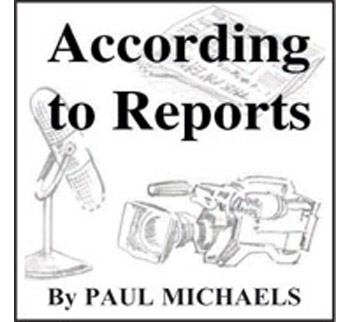A popular, Emmy award-winning TV drama series, Homeland, has recently attracted a lot of attention for another reason – controversial charges that it promotes anti-Arab and anti-Muslim stereotypes.
The show, seen in North America and in Britain, is based on a hugely successful Israeli series called Hatufim. Homeland deals with the terrorist threat to the United States by an American soldier who returns home as a “sleeper” after having been “turned” during eight years of captivity and torture following his capture in Afghanistan by Al Qaeda.
In his Oct. 27 column “Homeland: Is Obama’s favourite show racist?” John Doyle, the Globe and Mail’s TV critic, drew attention to Joseph Massad, an associate professor of modern Arab politics and intellectual history at Columbia University.
As Doyle notes, Massad “heaped scorn” on Homeland in an Al Jazeera blog for what he considers to be its blatant racism against Muslims. Doyle cites a couple of lines from Massad’s 3,000-plus-word piece without passing any critical judgment on the quality or validity of Massad’s complaint. Apparently in reference to Massad’s title at Columbia, Doyle refers to Massad only as a “scholar.”
However, when one looks carefully at what Massad has written on the Al Jazeera site, questions immediately arise about just what sort of scholar he is.
It’s one thing for Massad to raise strong objections about what he takes to be extreme anti-Muslim stereotyping (something Jews in particular should understand, given their justified sensitivity to negative portrayals of themselves as a people). But it’s quite another matter when Massad unfurls his critique by engaging in the bashing of Jews and Israel. (Here, Massad has quite a track record, including instances at Columbia, where Jewish students have formally complained about hostility they’ve encountered in his class when they’ve expressed views that don’t accord with his.)
Massad begins his lengthy article with an acknowledgment of the abundant critiques that have long appeared about how Arabs have been misrepresented by Hollywood and on American TV. He then immediately segues to his main target: Israel and the confluence, he alleges, between “racist” Israel and “racist” America: “Just as Israeli racist representations of Arabs are a reflection of an overall Israeli Jewish structural racism that pervades every aspect of Israeli Jewish society, American media racism is also just a branch of a larger American racism and racialism on which much of American culture, history, and national identity is based.”
There isn’t space in this column to even begin to rebut Massad’s vile, invidious characterization of Israel. But the sheer extremism in his language alone, including his repeated references to and emphasis on “Jewish” racism (even if couched as “Israeli Jewish” racism), should signal to any fair-minded reader that something is seriously, if not dangerously, askew in Massad’s complaint.
For Massad, Homeland is immeasurably tainted by its association with the Israeli series upon which it’s based. Doyle grasps this as he quotes a line that he identifies as Massad’s “main point”: “‘The racist representation of Arabs is so exponential, even for American television (and this is clearly the manifest effect of the Israeli Jewish identity of the show) that one does not know where to begin.”
Before long, “Israeli Jewish” yields to just “Jewish” in Massad’s piece, as he incessantly reminds readers that one of the Homeland characters, Saul Berenson, is the “American Jew Saul Berenson” or simply the “Jewish Berenson,” and so on ad nauseum.
In a particularly revealing passage, which hints at the perverse nature of Massad’s mind, Massad mentions that “the Jewish Berenson” is married to a “brown” woman, a Hindu Indian, a union that suggests “the Indian Hindu-Israeli Jewish right-wing alliance against Arabs and Muslims in the minds of the scriptwriters.”
Similar absurdities pile up throughout the remainder of article, to such a degree as to render the honorific of “scholar” laughable.
If only Massad’s message weren’t so pernicious.
Paul Michaels is director of research and senior media relations for the Centre for Israel and Jewish Affairs.
